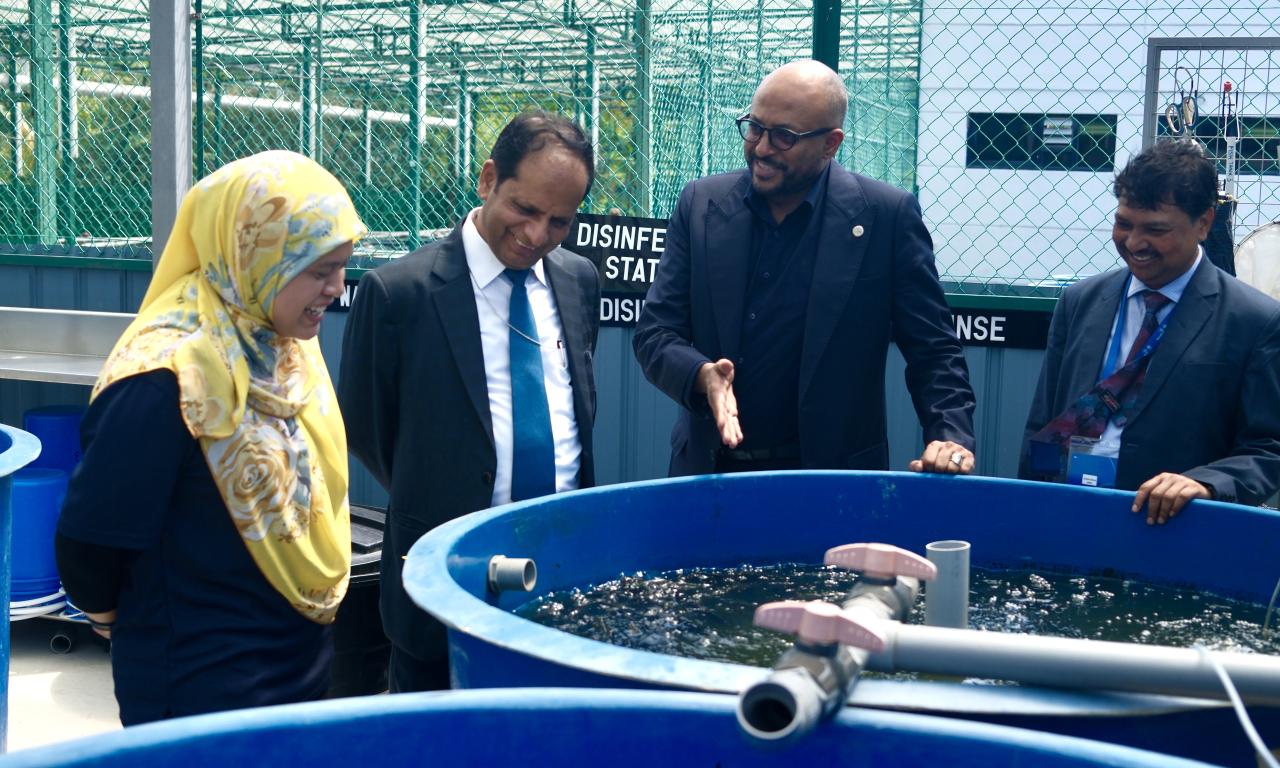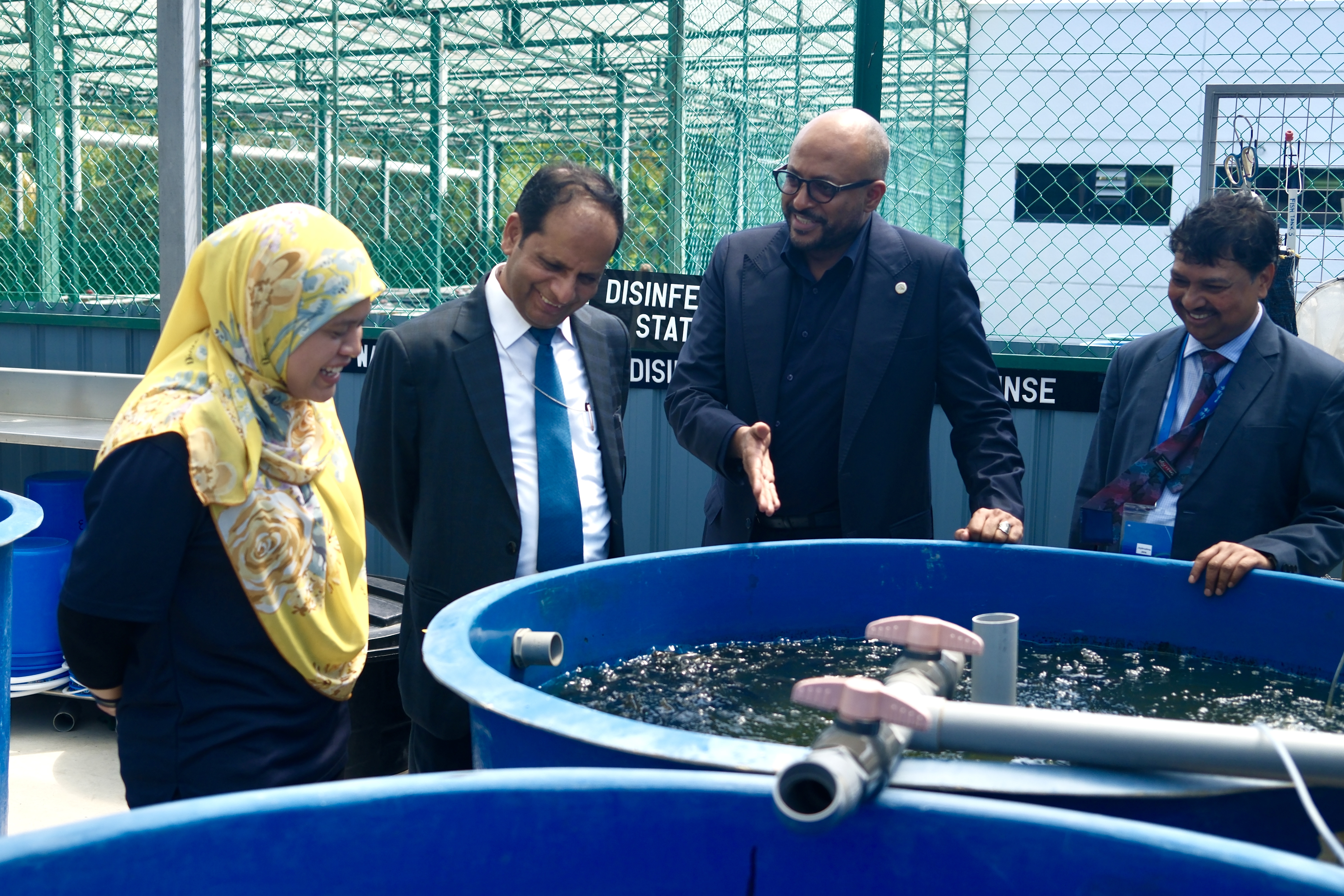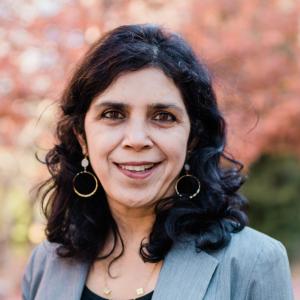

Entwined in mythology, traditions and livelihoods, fish is not just another food in India, but deeply cultural, particularly in the coastal states. India has quietly risen in ranks as the second largest fisheries and aquaculture producer in the world at 14.4 million tonnes in 2021. The country is now looking to take its fishing sector to the next level, aiming to fully harness the potential of aquatic food systems for sustainable development and boost incomes to uplift millions left behind by its booming economy. A recent visit to WorldFish research facilities by a delegation led by Dr. Himanshu Pathak, Secretary, Department of Agricultural Research and Education and Director General, Indian Council of Agriculture and Research (ICAR), Government of India, explored strengthening of research ties and collaboration with WorldFish, attesting to the commitment of India.
The delegation, visiting WorldFish headquarters in Penang, July 18, 2024, shared its vision and priorities with WorldFish scientists and toured its cutting-edge aquaculture research labs for aquatic animal genetics, health and feed.
“We want to sustainably increase production and adapt our fisheries and aquaculture to climate change. And for this, we are seeking the latest in science and technologies from around the world to fulfill these objectives,” said Dr. Pathak.
With the second largest aquaculture sector in the world, mostly farming carps and prawns, India is also well-positioned to share its experience and technical expertise with other countries aspiring to unleash their blue economies—in the spirit of South-South collaboration.
“WorldFish is a proponent of South-South collaboration, and it underlies the Asia–Africa BlueTech Superhighway that is currently under its first phase of implementation. We will welcome an opportunity to partner with India, which will give a boost to South-South collaboration and help accelerate the development of aquatic foods sector in other countries, particularly in Africa,” said Dr. Essam Yassin Mohammed, Director General, WorldFish.
The visit follows the signing of a 5-year joint work plan in June 2024 between ICAR and WorldFish, initiating the implementation of a second five-year research collaboration after the recently completed 2019-2023 cycle. The 2024-2028 work plan outlines research activities in collaboration with three ICAR institutes: Central Inland Fisheries Research Institute, Central Institute of Fisheries Technology, and Central Institute of Freshwater Aquaculture.
Dr. Joykrushna Jena, Deputy Director General, Fisheries Science, ICAR, acknowledged the successful collaboration with WorldFish in the first cycle under Dr. Mohan Chadag’s leadership and reiterated ICAR’s wide-ranging continued research collaboration with WorldFish—encompassing sustainable aquaculture, resilient fisheries, value chains and nutrition, and India’s involvement in capacity sharing with other countries.
A Model Partnership with the Government of India

India’s partnership with WorldFish is exemplary of a country’s commitment to research with most of the funds for research coming from the Government of India, as opposed to from donors.
At the state level, in Odisha, WorldFish’s partnerships across different government departments (Irrigation, Women & Child, and Fisheries) in implementing a project helped deliver cross-cutting impacts for marginalized communities through a scientific innovation on indigenous fish breeding—the increased production led to greater fish consumption, improved nutrition, particularly for women and child, and boosted incomes.
Some other research collaboration areas include improving productivity in pond aquaculture and beel (wetlands) fisheries, integrated farming systems with agro-ecological landscape approach, strengthening value chains, environmental assessments, and women empowerment in Andhra Pradesh, Assam and Bihar.
India’s commitment to research partnership is set to deliver greater impact not just for the country but potentially, for other countries in the region and beyond through sharing of expertise and wider dissemination of innovations and technologies.
